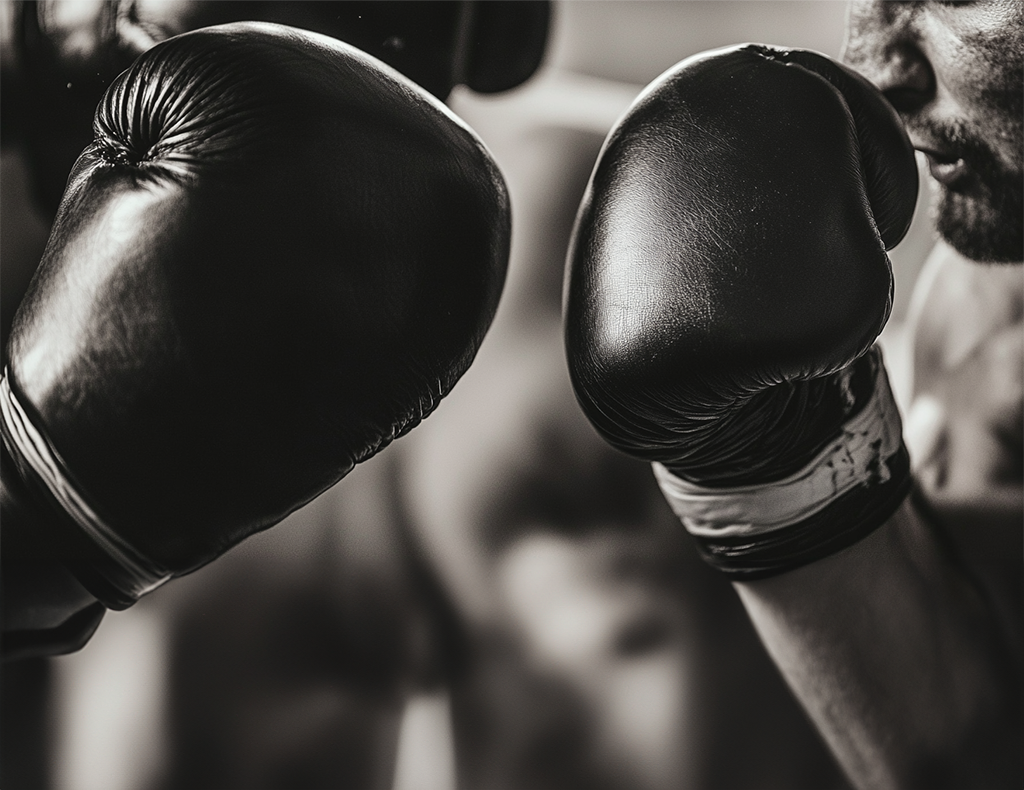Mind Over Matter: The Mental Game Behind Peak Sports Performance
South African-born Paddy Upton is a mental coach to more than 300 professional athletes from 16 sports. He brings over 25-years of experience working with high-performing teams in business and sports, across multiple industries and on five continents. In this freewheeling chat, Paddy sheds light on mental factors that may influence sports performance.
How did you land in this career as a mental health coach? Was it accidental, or did you always aspire to be in this field?
I definitely landed here by accident. I started out with a master's degree in sports science, and I was actually a fitness trainer in international cricket and professional rugby. I moved from fitness training to leadership coaching, and it was during my time as a business coach that I worked with Jacques Carlos. Interestingly, he was my first individual athlete, and he achieved amazing success. Then, the next cricketer asked, "Can you work with me?"—and the next person after that. While I do have a postgraduate degree in sports psychology, I never planned to get into this field, but it just happened naturally. So yes, I'm definitely an accidental mental coach, though fully qualified for it.

Is being a sports psychologist similar to being a therapist or counsellor, or is it different?
No, it's very, very different. General or traditional therapy and counseling look backwards into someone's life to assess and diagnose problems, then come up with solutions to fix them. In contrast, sports psychology doesn't look backwards; it focuses on looking forward and finding solutions for the future.
It asks, "How do I need to act in the present moment to create solutions for the future?" As I mentioned, it's very much solution-focused, whereas traditional psychology tends to focus on diagnosing and fixing problems.
What are the most common psychological challenges athletes face, and how do you help them overcome these?
In terms of sports psychology, the work I’ve found tends to be more about identifying and helping athletes remove distractions rather than teaching them how to focus or concentrate, because they already know how. We naturally, as humans, know how to concentrate and focus. So, it's more about identifying distractions.
"The biggest challenges for athletes are often related to being what we would call "externally referent"—meaning they are influenced by things outside themselves."
For example, the scoreboard, the size of the crowd, compliments or criticism, or the situation in the game. These external circumstances tend to distract athletes and create pressure, fear, or anxiety.
In contrast, athletes who are more "internally referent" take their reference points, power, and thinking from within themselves. They are better able to focus on the task at hand and are less distracted by the scoreboard, game situation, fans, the opposition, or the referee's actions. They're also less influenced by social media—by either criticism or compliments. While they may not be entirely neutral, they stay relatively unaffected compared to athletes who are highly impacted by negative comments on social media or in the media and overly boosted by positive compliments from strangers. The latter tend to have a bumpier road because they rely on external factors to determine how they feel about themselves.
Can you share some examples where you helped athletes maintain a balance between their personal lives and sports careers?
Some examples include working with religious athletes, regardless of their faith. I’ve worked with a number of athletes who are religious in their personal lives but don’t understand how to integrate their faith into their sport. This has been one of the most impactful areas of work I’ve done.
A practical example involves the two biggest mental obstacles to performance for any athlete in any sport: pressure and fear. Pressure stems from the desperate need to succeed, while fear comes from the intense desire not to fail. Both are tied to results in the future—pressure to a positive outcome and fear to a negative one.
Most faiths, regardless of the specific religion, have scriptures or teachings that emphasize leaving your fate, destiny, and results in God’s hands, while taking responsibility for what’s in your control and giving your best effort now. I often find that religious athletes suffer from pressure and fear. I ask them, "You’re so concerned about doing well and so afraid of failing, but don’t you believe that your results, fate, and destiny are in God’s hands? If you’re worrying about it, aren’t you trying to play God?" This has been one of the most significant and quickest transformations I’ve seen in athletes.
Another example is helping an athlete overcome the fear of losing or being dropped. I use a process of gaining perspective. I ask them to think about a truly bad situation happening in the world, or the worst situation that has happened to someone close to them. They often share a real tragedy, and then I help them put it into perspective by asking, "In relation to that tragedy, how does losing a sports game compare?" More often than not, they realize that losing a game isn’t nearly as bad as they thought, and they experience a sense of relief.
"Athletes often talk about suffering from fear and pressure, but real pressure is not being able to feed your children, not playing a sports match in front of 40,000 people."
At the end of the day, losing a sports match doesn’t have significant consequences in the grand scheme of life, especially when you compare it to real tragedies—wars, famines, deaths, and other serious challenges people face.

How do you approach goal setting with athletes, and what methods do you use to keep them motivated?
I take a very tentative approach to goal setting. My rule of thumb—though this is just an estimate—is that goal setting works well for about one-third of athletes because it gives them something to focus on and work toward. For about another third, it sometimes works and sometimes doesn't, or it works in certain situations. And for the remaining third, goal setting doesn’t work at all because it focuses them too much on the future. Since goals are always in the future, this can put a lot of pressure on them. If they find themselves slightly off course from achieving their goal, they start feeling more and more pressure, which actually distracts them from their performance.
Generally, with athletes over the age of 16, I ask them if goals work for them or if they set goals. By that age, they usually already know whether goal setting helps them or not, and I work with them accordingly. I don’t impose goal setting on anyone.
Another distinction I make is between outcome goals and process goals. Outcome goals are about what you want to achieve at some point in the future, while process goals are about the steps you need to take in the present moment to work toward that outcome.
For example, with the Olympics, we only talked once about winning the gold medal. Everyone agreed that winning the gold medal was the goal, but after that, we didn’t need to mention it again. We were clear on the outcome, so the focus shifted to all the small process goals we needed to accomplish one step at a time to get there.
How does nutrition play a role in physical and mental health, and what dietary principles do you emphasize?
Probably the single most impactful health factor for athletes—and for most people—is sleep. We now know that poor sleep has a significant impact on all aspects of our physical performance, including speed, strength, and endurance. It also negatively affects emotional regulation, emotional intelligence, and cognitive functions such as reaction time and problem-solving. Additionally, when we don’t get enough sleep, our bodies tend to crave unhealthy food, and we feel less inclined to exercise. So, number one is sleep. With good sleep, it becomes easier to exercise and maintain a healthy diet.
These three—sleep, nutrition, and exercise—really go hand in hand and cannot be separated. However, you can go a few days without eating perfectly or without exercising, and the negative impact won't be as severe as a few days of bad sleep.
When it comes to nutrition, it's very simple: food is either poison for our body or medicine, and sometimes it falls somewhere in between. With athletes, I focus on educating them first about what foods are considered poison and what are medicine. I help them understand the value of consistently putting "medicine" in their bodies rather than poison. Generally, we tend to eat junk food when we haven't eaten well throughout the day, when we're stressed, nervous, or anxious. These are the red flags that lead to unhealthy eating.
Master Your Mental Game for Peak Performance
If you’re an athlete or a leader striving for excellence, Paddy Upton’s approach to mental coaching can help you overcome distractions, maintain focus, and achieve peak performance. By mastering your mind, you can elevate your game to new heights.
Key Takeaways:
- Sports psychology focuses on solutions for future performance rather than diagnosing past problems.
- Athletes perform best when they focus internally and minimize distractions from external sources.
- Goal setting is personal—process goals often work better than outcome goals for long-term success.
- Sleep, nutrition, and exercise are intertwined; good sleep is the foundation for optimal physical and mental health.
- Integrating personal beliefs into sports can help athletes manage pressure and fear, leading to better performance.







Comments